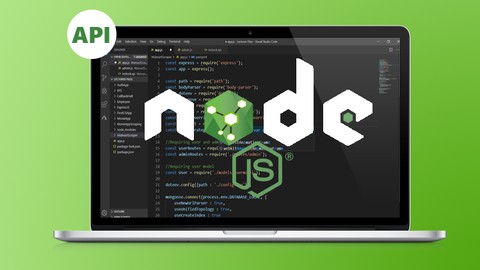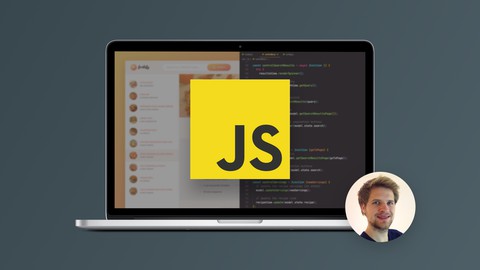Design Patterns in JavaScript
Loại khoá học: Programming Languages
Discover the modern implementation of design patterns in JavaScript
Mô tả
Course Overview
This course provides a comprehensive overview of Design Patterns in JavaScript from a practical perspective. This course in particular covers patterns with the use of:
The latest versions of the JavaScript programming language
Use of modern programming libraries and frameworks
Use of modern developer tools such as JetBrains WebStorm
Discussions of pattern variations and alternative approaches
This course provides an overview of all the Gang of Four (GoF) design patterns as outlined in their seminal book, together with modern-day variations, adjustments, discussions of intrinsic use of patterns in the language.
What are Design Patterns?
Design Patterns are reusable solutions to common programming problems. They were popularized with the 1994 book Design Patterns: Elements of Reusable Object-Oriented Software by Erich Gamma, John Vlissides, Ralph Johnson and Richard Helm (who are commonly known as a Gang of Four, hence the GoF acronym).
The original book GoF book used C++ and Smalltalk for its examples, but, since then, design patterns have been adapted to every programming language imaginable: C#, Java, Swift, Python and now — JavaScript!
The appeal of design patterns is immortal: we see them in libraries, some of them are intrinsic in programming languages, and you probably use them on a daily basis even if you don't realize they are there.
What Patterns Does This Course Cover?
This course covers all the GoF design patterns. In fact, here's the full list of what is covered:
SOLID Design Principles: Single Responsibility Principle, Open-Closed Principle, Liskov Substitution Principle, Interface Segregation Principle and Dependency Inversion Principle
Creational Design Patterns: Builder, Factories (Factory Method and Abstract Factory), Prototype and Singleton
Structrural Design Patterns: Adapter, Bridge, Composite, Decorator, Façade, Flyweight and Proxy
Behavioral Design Patterns: Chain of Responsibility, Command, Interpreter, Iterator, Mediator, Memento, Observer, State, Strategy, Template Method and Visitor
Who Is the Course For?
This course is for JavaScript developers who want to see not just textbook examples of design patterns, but also the different variations and tricks that can be applied to implement design patterns in a modern way. For example, the use of Symbol.iterator allows objects (including iterator objects) to be iterable and lets scalar objects masquerade as if they were collections.
Presentation Style
This course is presented as a (very large) series of live demonstrations being done in JetBrains WebStorm and presented using the Kinetica rendering engine. Kinetica removes the visual clutter of the IDE, making you focus on code, which is rendered perfectly, whether you are watching the course on a big screen or a mobile phone.
Most demos are single-file, so you can download the file attached to the lesson and run it in WebStorm, Atom or another IDE of your choice (or just run them from the command-line).
This course does not use UML class diagrams; all of demos are done via live coding.
Bạn sẽ học được gì
Recognize and apply design patterns
Refactor existing designs to use design patterns
Reason about applicability and usability of design patterns
Yêu cầu
- Good understanding of JavaScript
- Familiarity with latest JavaScript language features
- Good understanding of object-oriented design principles
- A computer with latest JS and NodeJS versions and (hopefully) an IDE
Nội dung khoá học
Viết Bình Luận
Khoá học liên quan

Đăng ký get khoá học Udemy - Unica - Gitiho giá chỉ 50k!
Get khoá học giá rẻ ngay trước khi bị fix.


















Đánh giá của học viên
Bình luận khách hàng